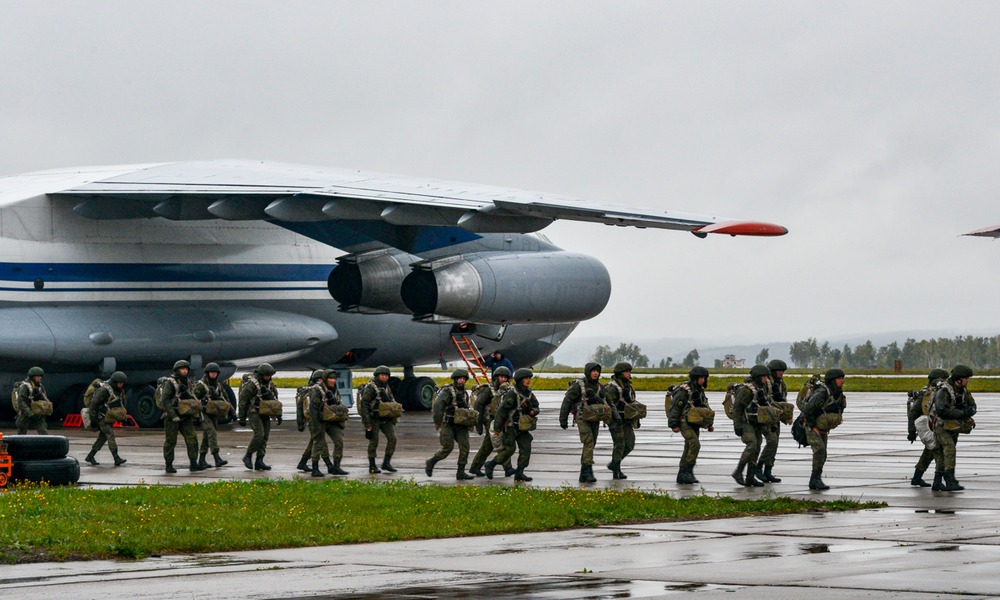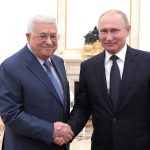RUSSIA MONITOR
Date: 6 February 2019
Central Asia May Host New Russian Military Base
Moscow is paving its way for making a final decision to launch another military base in Kyrgyzstan. Such a step came as an aftermath of Sergei Lavrov’s recent visit to Bishkek. Despite previous behind-the-scenes talks, none of the sides seems eager to play the role of an initiator. Nonetheless, deploying additional Russian forces to Kyrgyz soil is part of the Kremlin’s aggressive policy of fielding troops in some strategically important regions of the world. The stakes are high concerning another area where Russia has long competed with the United States, which is due to Afghanistan as the country neighbors with former Soviet republics of Central Asia.

Russian Foreign Minister paid a visit to three Central Asian countries, with Kyrgyzstan as his first stop on a trip. Speaking to students on February 4, Lavrov was asked whether Russia was prepared to open a second base in the Central Asian country. The Russian official, who had earlier met with senior officials, claimed that “this is the first time he heard about this,” yet adding that “this is not our [Russia’s] initiative.” “We will be ready to discuss with our Kyrgyz friends their ideas regarding security.”, he argued. Kyrgyzstan hosts Russia’s air base at Kant that operates in the northern part of the country. It was inaugurated in 2003 under the auspices of the Collective Security Treaty Organization (CSTO), which includes Russia, Kyrgyzstan, Armenia, Belarus, Kazakhstan, and Tajikistan. In 2017, the Kant airbase and three other Russian military facilities in Kyrgyzstan, including a fleet communication point, seismic station, and torpedo testing center located at Issyk Kul lake in Karakul, were formally combined into a single base. Russia’s lease of the Kant military air base is bound to expire in 2032. A U.S. air base outside the capital, Bishkek, began hosting U.S. troops in 2001, playing an important logistic role during the military operation in Afghanistan. Nonetheless, it was shut in 2014 under Russia’s pressure.
Rumors about Russia’s second military facilities to be installed in Kyrgyzstan have been circulating for a long time. Back in February 2013, Kyrgyz press reported on Moscow’s intention to establish a base in the Osh province which is of crucial strategic significance. Former Kyrgyz President Almazbek Atambaev was in favor of boosting Moscow’s military presence in the country. Back in 2017, he claimed that Russia could deploy troops in the Batken region on the Kyrgyz-Tajik border. In December 2017, Russian Deputy Foreign Minister Grigory Karasin admitted that there is no need to establish a new military base as the Kant airbase is able alone to counter all possible threats. In March 2018, new Kyrgyz President Sooronbai Jeenbekov said that the idea of a second Russian base was discussed before he was elected president in October 2017, yet that no decision was made. He claimed that Moscow has not made a final decision on setting new military facilities on Kyrgyz soil. In December 2018, Sooronbai Jeenbekov said that Bishkek was not negotiating with Moscow on the possible opening of another Russian military base. Now Lavrov clearly communicated Moscow’s intention to launch new military facilities provided that the Kyrgyz authorities give green light to such an undertaking.
It should be expected that Russia will be keen to increase its interest in expanding military presence in Central Asia, which is due to the current situation in neighboring Afghanistan where the U.S.-Taliban peace talks are currently underway. Kyrgyzstan is the most pro-Russian country in the region, as evidenced by the fact that 90 percent of the population considers Moscow in terms of an ally. Although Russian minority accounts for 6 percent of Kyrgyzstan’s total population, Russian maintains its position of the country’s second official language. Kyrgyz people watch almost exclusively Russian television whereas President Vladimir Putin enjoys greater popularity than local politicians. Russia’s Federal Security Service (FSB) is in charge of taking control over Kyrgyz special services while Gazprom has declared its intention to increase stakes in the local gas sector, from 22 to 69 percent. Moscow is against Kyrgyzstan’s plans to develop rail connections with China so the Kremlin may be satisfied with anti-China protests that sparked in the country.
All texts published by the Warsaw Institute Foundation may be disseminated on the condition that their origin is credited. Images may not be used without permission.














